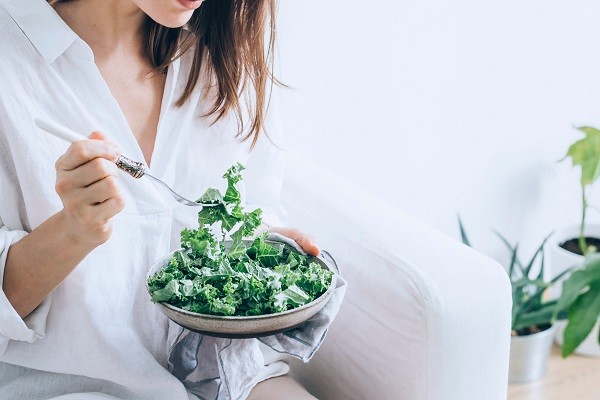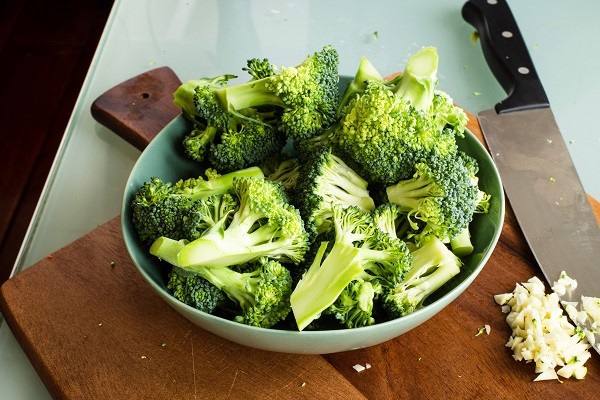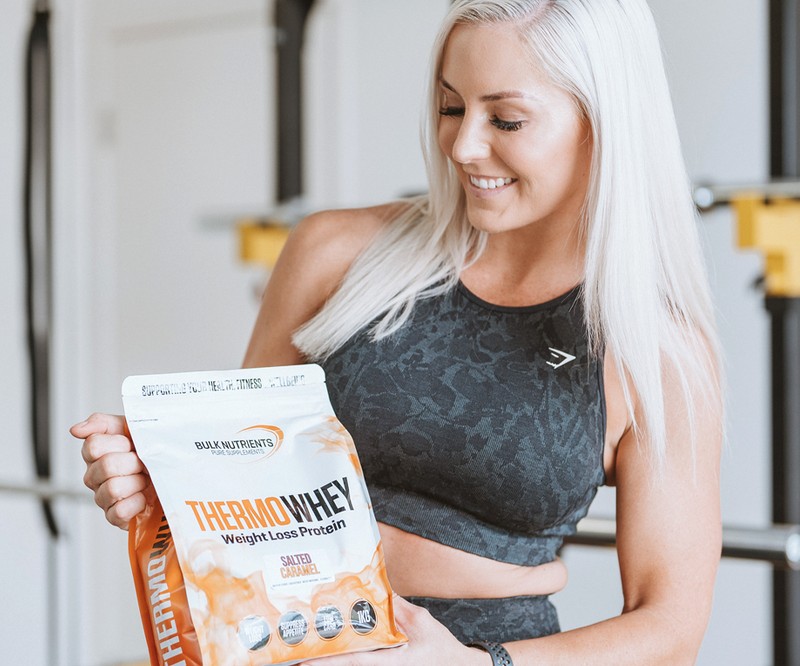Why “Clean Eating” Has No Meaning

What does "Clean Eating" mean?
When people talk about "clean eating" they think they're referring to certain foods that are somehow without "harmful" properties. Something like a slice of pizza must be "dirty" and broccoli is "clean." Why? Because (apparently) broccoli doesn't have anything harmful and pizza does, all that cheese, carbohydrates, and salt!
Really? Well, here's an inconvenient truth: broccoli contains what are called goitrogens, particularly one group called thiocyanates, that mess with the normal function of the thyroid gland. This can lead to many, many health issues, and potentially be fatal if not treated.
And we're just getting warmed up; broccoli also packs lots of formaldehyde, a natural by-product of oxidation that causes cancer in rats. Then we've got water, which is also toxic in the right dose. But broccoli must be super unhealthy right? We should avoid it all costs, right?
Not a chance. Because it's the dose that makes the poison. The truth is human beings can't consume enough broccoli for this to pose a problem. It's out-of-context garbage!
But these out-of-context untruths are what people do to demonise particular foods, certainly fast foods. But if you tried this on broccoli, everyone would laugh at you.
You've heard people say: "Oh wow, you can't eat that! Do you know they use that for the manufacturing of plastics and industrial chemicals and petroleum?! Who would put that into their body?" As they eat another stalk of "clean" broccoli.
Well... broccoli contains the aforementioned formaldehyde, which is exactly what is used in the manufacturing of plastics, and petroleum.
So, after spitting out their broccoli and refusing to admit defeat over something they are certain to be true, they say: "Well, it's more nutrient-dense and that's 'clean!'"
But scientists don't agree that "clean" food is more nutrient-dense.
A fact about nutritional science that isn't well known is that there is no scientific consensus on what nutrient density means. As one group of researchers put it:
“There is currently no science-based definition for either nutrient density or nutrient-dense foods."
A flexible diet vs a rigid diet: what's best for weight loss?
Of course, we should eat broccoli, and in most contexts, it is great for us. Fast foods should be consumed in moderation. Let's not lose sight of what's real.

But the point is, saying one is "cleaner" than another ignores scientific truths, and can begin the process of an unhealthy relationship with food.
The ideal outcome of this information is to stop people from demonising foods and getting them to understand that "clean" and "dirty" foods miss the forest for the trees.
Orthorexia Nervosa was the term given in 1997 by a general physician called Steven Bratman, which defines "an unhealthy obsession with eating healthy food." I'm sure you know exactly what this means. You might have even gone through this yourself or known someone who has.
And it's a problem because looking at foods as either good/bad or clean/dirty can form a very unhealthy relationship with food that can lead to all sorts of issues.
And it's why having a "flexible" approach to eating (enjoying both the pizza AND the broccoli) has been shown to lead to:
- Less overeating, lower body fat, and the absence of depression and anxiety
A strict approach to dieting was associated with:
- Overeating and more body weight.
And in another study:
- Strict and "rigid" dieting was associated with symptoms of an eating disorder, disturbance of mood, and even anxiety.

The key point here is that a flexible approach to dieting wasn't largely correlated with these issues.
This begs an obvious question...
How much 'junk' food can I eat each day?
Again, the word "junk" is like "dirty" or "unclean" and is unfair and misleading. A doughnut can form a "healthy" part of your diet if you're not having too many of these foods that means you can't get enough micronutrients.
And that's not our opinion. It's the opinion of scientists, who after a mammoth review declared that 20% of total calories from added sugars is approximately the maximum amount that won’t water down our diet’s concentration of essential micronutrients.
So, if you can eat 1800 calories a day as part of your weight loss diet, then 20% of that (360 calories) can come in the form of added sugars like a doughnut! Of course, the broccoli should be in there too. And for those who cannot wrap their head around the scientific truth, they normally resort to the last-ditch effort of "sugar is bad for your heart, despite the fact you might be losing weight."
But the truth is that weight loss, regardless of the make-up of your diet, is inherently cardioprotective.
It boils down to this: there is no such thing as "clean" food according to scientists. Thinking certain foods are "good" or "bad" can lead to a negative relationship with food that can be harmful, and make keeping the weight off harder. Many foods contain chemicals that in the right dose, can harm or kill.
But context is everything. Nutrient-dense foods should be consumed in concert with 20% of total calories being derived from added sugars when you feel like it.
References:
- Bratman S. What is orthorexia? Accessed August 2011. orthorexia.com
- Chaker L, Bianco AC, Jonklaas J, Peeters RP. Hypothyroidism. Lancet. 2017;390(10101):1550-1562. doi:10.1016/S0140-6736(17)30703-1
- Erdogan MF. Thiocyanate overload and thyroid disease. Biofactors. 2003;19(3-4):107-11. doi: 10.1002/biof.5520190302. PMID: 14757960.
- Gaitan E. Goitrogens. Baillieres Clin Endocrinol Metab. 1988 Aug;2(3):683-702. doi: 10.1016/s0950-351x(88)80060-0. PMID: 2464986.
- Gibson SA. Dietary sugars intake and micronutrient adequacy: a systematic review of the evidence. Nutr Res Rev. 2007 Dec;20(2):121-31.
- Leenen R, et al. Relative effects of weight loss and dietary fat modification on serum lipid levels in the dietary treatment of obesity. J Lipid Res. 1993 Dec;34(12):2183-91.
- Miller GD, Drewnowski A, Fulgoni V, Heaney RP, King J, Kennedy E. It is time for a positive approach to dietary guidance using nutrient density as a basic principle. J Nutr. 2009 Jun;139(6):1198-202. doi: 10.3945/jn.108.100842. Epub 2009 Apr 1. PMID: 19339707.
- Morgan KT. A brief review of formaldehyde carcinogenesis in relation to rat nasal pathology and human health risk assessment. Toxicol Pathol. 1997 May-Jun;25(3):291-307. doi: 10.1177/019262339702500307. PMID: 9210261.
- Nandini DB, Rao RS, Deepak BS, Reddy PB. Sulforaphane in broccoli: The green chemoprevention!! Role in cancer prevention and therapy. J Oral Maxillofac Pathol. 2020;24(2):405. doi:10.4103/jomfp.JOMFP_126_19
- National Center for Biotechnology Information (2021). PubChem Compound Summary for CID 712, Formaldehyde. Retrieved August 19, 2021.
- Peechakara BV, Gupta M. Water Toxicity. [Updated 2021 Jul 3]. In: StatPearls [Internet]. Treasure Island (FL): StatPearls Publishing; 2021 Jan-.
- Salthammer T, Mentese S, Marutzky R. Formaldehyde in the indoor environment. Chem Rev. 2010;110(4):2536-2572. doi:10.1021/cr800399g
- Smith CF, et al. Flexible vs. Rigid dieting strategies: relationship with adverse behavioural outcomes. Appetite. 1999 Jun;32(3):295-305.
- Stewart TM, et al. Rigid vs. flexible dieting: association with eating disorder symptoms in nonobese women. Appetite. 2002 Feb;38(1):39-44.
Related Blogs

The Benefits of Coffee for Weight Loss and Health
Posted by Bulk Nutrients
Estimated reading time: 5 minutes

Choosing a Protein Powder for Weight Loss
Posted by Bulk Nutrients
Estimated reading time: 5 minutes

Diets that work? Which diet is best for me?
Posted by Bulk Nutrients
Estimated reading time: 17 minutes














































